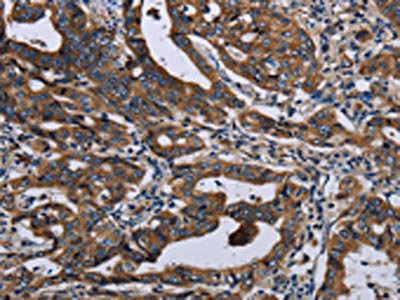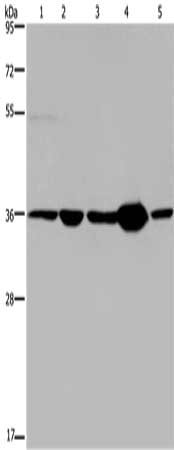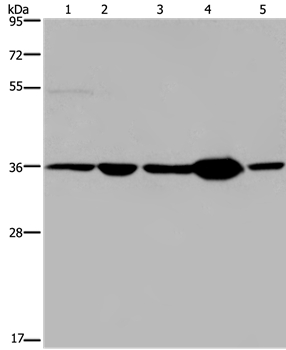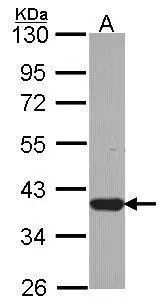
The image on the left is immunohistochemistry of paraffin-embedded Human gastic cancer tissue using CSB-PA217118(LZTFL1 Antibody) at dilution 1/50, on the right is treated with fusion protein. (Original magnification: x200)
LZTFL1 Antibody
CSB-PA217118
ApplicationsWestern Blot, ELISA, ImmunoHistoChemistry
Product group Antibodies
ReactivityHuman, Mouse, Rat
TargetLZTFL1
Overview
- SupplierCusabio
- Product NameLZTFL1 Antibody
- Delivery Days Customer20
- ApplicationsWestern Blot, ELISA, ImmunoHistoChemistry
- CertificationResearch Use Only
- ClonalityPolyclonal
- ConjugateUnconjugated
- Gene ID54585
- Target nameLZTFL1
- Target descriptionleucine zipper transcription factor like 1
- Target synonymsBBS17, leucine zipper transcription factor-like protein 1
- HostRabbit
- IsotypeIgG
- Protein IDQ9NQ48
- Protein NameLeucine zipper transcription factor-like protein 1
- Scientific DescriptionThis gene encodes a ubiquitously expressed protein that localizes to the cytoplasm. This protein interacts with Bardet-Biedl Syndrome (BBS) proteins and, through its interaction with BBS protein complexes, regulates protein trafficking to the ciliary membrane. Nonsense mutations in this gene cause a form of Bardet-Biedl Syndrome; a ciliopathy characterized in part by polydactyly, obesity, cognitive impairment, hypogonadism, and kidney failure. This gene may also function as a tumor suppressor; possibly by interacting with E-cadherin and the actin cytoskeleton and thereby regulating the transition of epithelial cells to mesenchymal cells. Alternative splicing of this gene results in multiple transcript variants.
- ReactivityHuman, Mouse, Rat
- Storage Instruction-20°C or -80°C
- UNSPSC41116161






